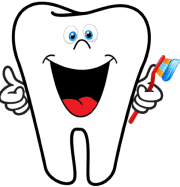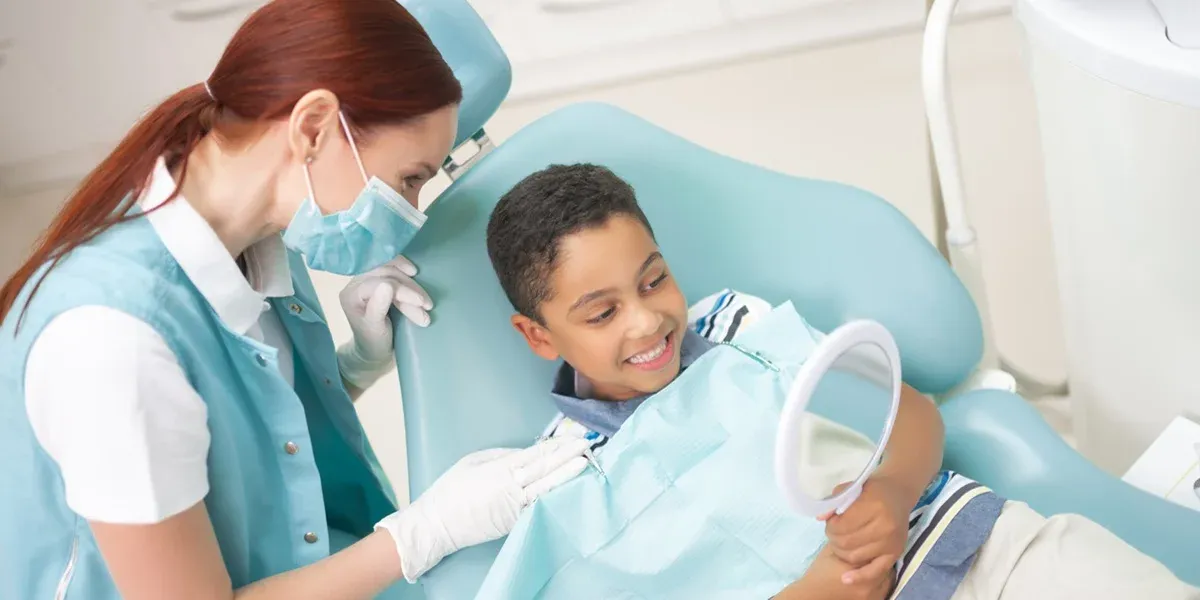
How do we detect early tooth decay in children?
Tooth decay, sometimes referred to as dental caries, is the most prevalent chronic oral health issue among toddlers, school-going children, and adolescents. Tooth decay begins with enamel deterioration and can develop into cavities and tooth damage severe enough to require extraction. The good news is that with the help of fluoride, excellent dental hygiene, and your child's regular dentist appointments, you can detect and reduce the risk of early tooth decay in children.
What causes tooth decay in kids?
Carbohydrate-containing foods (sugars and starches), such as bread, cereals, milk, soda, fruits, cakes, or candies, cause tooth decay. Bacteria in the mouth break down certain meals, converting them to acids. The mixture of bacteria, acid, food waste, and saliva results in plaque forming that adheres to the teeth. Plaque acids destroy the enamel surface of the teeth, causing holes in the teeth known as cavities.

Early Signs of Tooth Decay in Children
White patches at the gums, mainly on the top two front teeth, maybe the first sign of tooth decay. Even for a child's doctor or dentist, these spots are initially difficult to identify without the right tools. This process prevents further harm and stops tooth decay from spreading and growing; a young child with cavities must be checked and fixed immediately.
How to reduce the risk of tooth decay in children?
By following these easy actions, you can avoid the risk of tooth decay at the early age of your child:

- As soon as your kid grows a tooth, begin brushing their teeth. It will help them develop the habit of brushing their teeth.
- You should use fluoride toothpaste and make them use it twice daily to brush their teeth and tongue. Meanwhile, monitor and assist your child in brushing their teeth.
- Only apply a minimal quantity of toothpaste, around the size of a pea, to children under three.
- After your child turns two, you should clean their teeth using floss daily.
- Never allow your child to carry or drink from a baby bottle or sippy cup for an extended period or use one as a pacifier. Fill the bottle or sippy cup with water if your child requests it between meals.
- Ensure that your children eat a healthy, nutritious diet. Your child should consume the least amount of sugary or sticky items, such as candies, jellies, cream cakes, or muffins.
- Snacks like biscuits and crisps also contain carbohydrates such as sugar. These foods are particularly harmful if your child has the habit of frequently reaching for them. Keep them limited to occasional use only.
- Prevent the transfer of bacteria from your mouth to your child's. It usually happens by sharing, eating from the same spoon, or drinking from the same straw or glass. Avoid sharing utensils with your child, and you can stop the transfer of bacteria from your mouth to theirs.
- If your kid takes a bottle before bed, only fill it with water. Sweeteners in juice, milk or infant formula can lead to decaying teeth.
- If you are living in a region lacking purified water, discuss utilizing fluoride medication with your child's doctor or dentist. Also, inquire about the inclusion of the quantity of fluoride into your child's oral routine.
Final Thoughts
Good dental hygiene and a balanced diet that limits sugary meals and drinks prevent tooth decay. Parents can help prevent dental decay in their children by providing them with a healthy, well-balanced diet from an early age.
Visit the dentist often, even if you maintain good dental care at home. The dentists will inspect your child's teeth and provide recommendations. Most dentists recommend the first visit around a child's first birthday.
Tooth decay can cause oral and child health problems, but it can be prevented and reduced. Teach your kid proper dental hygiene and regular dentist visits. Your child will feel better and laugh brighter.
Contact your kids' dentist in Stockton, Dr. Sajjad Rizvi D.D.S. at Happy Kids Dental, to know how to detect early tooth decay in children.
Resource:
Tips To Prevent Tooth Decay In Kids
This media/content or any other on this website does not prescribe, recommend, or prevent any treatment or procedure. Therefore, we highly recommend that you get the advice of a qualified dentist or other medical practitioners regarding your specific dental condition.
Subscribe To Our Newsletter
Get Updates And Learn From The Best


